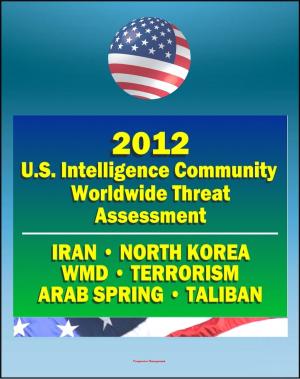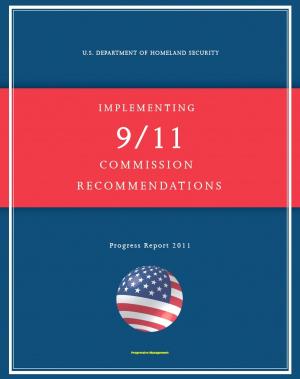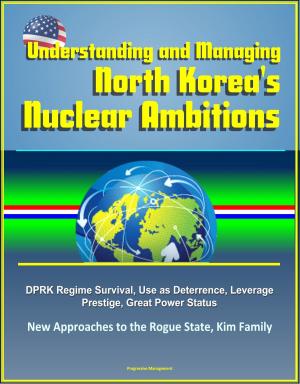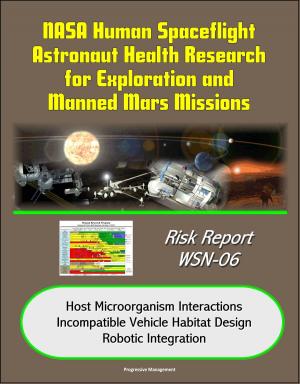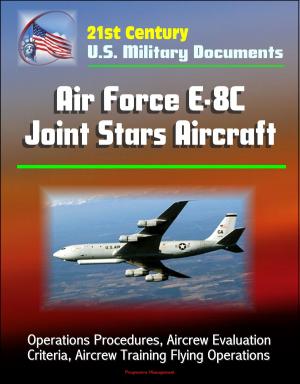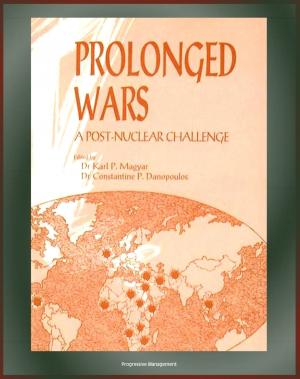Russia Reports (Volume 2) - Economics, Agriculture, WTO, Trade, Doing Business in Russia, Country Commercial Guide, Aviation, 1999 Financial Crisis, Putin on Agrarian Policy
Nonfiction, History, Asian, Russia| Author: | Progressive Management | ISBN: | 9781310895371 |
| Publisher: | Progressive Management | Publication: | March 25, 2014 |
| Imprint: | Smashwords Edition | Language: | English |
| Author: | Progressive Management |
| ISBN: | 9781310895371 |
| Publisher: | Progressive Management |
| Publication: | March 25, 2014 |
| Imprint: | Smashwords Edition |
| Language: | English |
Nine reports, studies, and documents provide special insight into the Russian economy and agriculture, with detailed discussions of vital topics which are of particular interest during the ongoing crisis involving Russian aggression against Crimea and the Ukraine. Reports in this compendium: Doing Business in Russia: 2012 Country Commercial Guide for U.S. Companies * Russia - Trade Summary * Russia Aviation * The Russian Financial Crisis * Russia's Economic Performance and Policies and Their Implications for the United States * Russia's Accession to the WTO and Its Implications for the United States * USDA Foreign Agricultural Service GAIN Report * Putin Gives Key Speech on Russian Agrarian Policy * Social Security in Russia.
Doing Business in Russia: 2012 Country Commercial Guide for U.S. Companies - Political and Economic Environment * Selling U.S. Products and Services * Leading Sectors for U.S. Export and Investment * Trade Regulations, Customs and Standards * Investment Climate * Trade and Project Financing * Business Travel * Contacts, Market Research and Trade Events * Guide to Our Services
Russia - Trade Summary - On August 22, 2012, Russia became the 156th member of the World Trade Organization (WTO). On December 14, 2012, President Obama signed legislation authorizing the termination of the application of the Jackson-Vanik amendment and the extension of permanent normal trade relations to Russia. On December 21, 2012, the United States and Russia each simultaneously filed a letter with the Director General of the WTO notifying the WTO that they each withdrew their notices of non-application and consented to the application of the WTO Agreement between them. As a consequence, following nearly 20 years of negotiations, the United States and Russia are applying the terms and conditions of the WTO Agreement to each other.
Russia Aviation - The Russian aviation industry has undergone a dramatic transformation designed to position it as a formidable competitor to the aviation industries of the United States and the EU.
The Russian Financial Crisis - By surveying the literature, it is apparent that the Russian crisis, and to some extent the Asian crisis that preceded it, was caused by a combination of internal structural problems in the domestic economy (especially in the banking and fiscal systems) and growing problems with the international financial system that permits excessively rapid outflows of capital.
Russia's Economic Performance and Policies and Their Implications for the United States - The Russian economy is highly dependent on the production and export of oil, gas, and other natural resources. Its success has largely been the result of record-breaking world energy prices, although prudent fiscal policies have also helped to promote economic stability. The Putin regime's failure to complete important economic reforms and its penchant for re-asserting government control over key economic sectors also loom among the possible roadblocks down the road.
Russia's Accession to the WTO and Its Implications for the United States - In joining the WTO, Russia will have committed to bring its trade laws and practices into compliance with WTO rules and other market-opening measures.
USDA Foreign Agricultural Service GAIN Report - On April 1, 2012, Russia's President Dmitry Medvedev signed into law a bill on ratification of the 2011 Free Trade Agreement of the Commonwealth of Independent States (2011 CIS FTA). The agreement was signed on October 18, 2011, by eight CIS members, including Russia, Ukraine, Belarus, Kazakhstan, Armenia, Kyrgyzstan, Moldova and Tajikistan.
Putin Gives Key Speech on Russian Agrarian Policy - This speech included important policy statements regarding the Russian Government's support to the agricultural sector, Russia's WTO accession, government policy on grain exports and livestock production, and answers to a variety of questions from farmers and agri-business representatives.
Nine reports, studies, and documents provide special insight into the Russian economy and agriculture, with detailed discussions of vital topics which are of particular interest during the ongoing crisis involving Russian aggression against Crimea and the Ukraine. Reports in this compendium: Doing Business in Russia: 2012 Country Commercial Guide for U.S. Companies * Russia - Trade Summary * Russia Aviation * The Russian Financial Crisis * Russia's Economic Performance and Policies and Their Implications for the United States * Russia's Accession to the WTO and Its Implications for the United States * USDA Foreign Agricultural Service GAIN Report * Putin Gives Key Speech on Russian Agrarian Policy * Social Security in Russia.
Doing Business in Russia: 2012 Country Commercial Guide for U.S. Companies - Political and Economic Environment * Selling U.S. Products and Services * Leading Sectors for U.S. Export and Investment * Trade Regulations, Customs and Standards * Investment Climate * Trade and Project Financing * Business Travel * Contacts, Market Research and Trade Events * Guide to Our Services
Russia - Trade Summary - On August 22, 2012, Russia became the 156th member of the World Trade Organization (WTO). On December 14, 2012, President Obama signed legislation authorizing the termination of the application of the Jackson-Vanik amendment and the extension of permanent normal trade relations to Russia. On December 21, 2012, the United States and Russia each simultaneously filed a letter with the Director General of the WTO notifying the WTO that they each withdrew their notices of non-application and consented to the application of the WTO Agreement between them. As a consequence, following nearly 20 years of negotiations, the United States and Russia are applying the terms and conditions of the WTO Agreement to each other.
Russia Aviation - The Russian aviation industry has undergone a dramatic transformation designed to position it as a formidable competitor to the aviation industries of the United States and the EU.
The Russian Financial Crisis - By surveying the literature, it is apparent that the Russian crisis, and to some extent the Asian crisis that preceded it, was caused by a combination of internal structural problems in the domestic economy (especially in the banking and fiscal systems) and growing problems with the international financial system that permits excessively rapid outflows of capital.
Russia's Economic Performance and Policies and Their Implications for the United States - The Russian economy is highly dependent on the production and export of oil, gas, and other natural resources. Its success has largely been the result of record-breaking world energy prices, although prudent fiscal policies have also helped to promote economic stability. The Putin regime's failure to complete important economic reforms and its penchant for re-asserting government control over key economic sectors also loom among the possible roadblocks down the road.
Russia's Accession to the WTO and Its Implications for the United States - In joining the WTO, Russia will have committed to bring its trade laws and practices into compliance with WTO rules and other market-opening measures.
USDA Foreign Agricultural Service GAIN Report - On April 1, 2012, Russia's President Dmitry Medvedev signed into law a bill on ratification of the 2011 Free Trade Agreement of the Commonwealth of Independent States (2011 CIS FTA). The agreement was signed on October 18, 2011, by eight CIS members, including Russia, Ukraine, Belarus, Kazakhstan, Armenia, Kyrgyzstan, Moldova and Tajikistan.
Putin Gives Key Speech on Russian Agrarian Policy - This speech included important policy statements regarding the Russian Government's support to the agricultural sector, Russia's WTO accession, government policy on grain exports and livestock production, and answers to a variety of questions from farmers and agri-business representatives.

